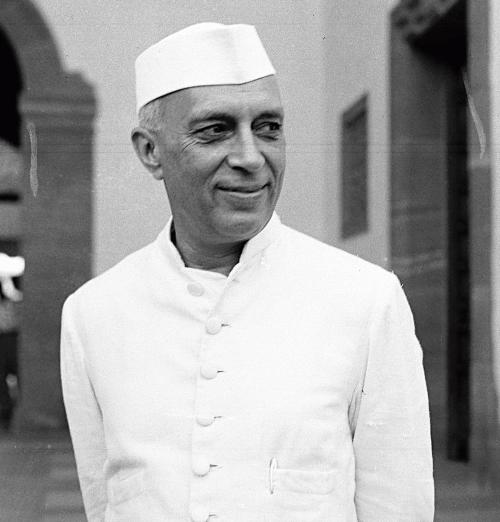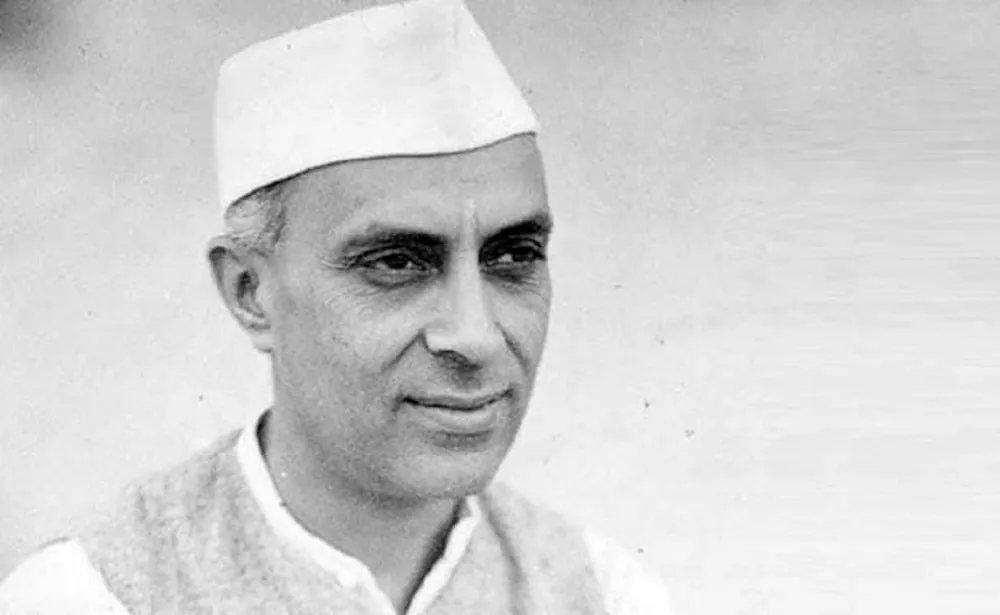Jawaharlal Nehru was a prominent figure in Indian history, playing a key role in the country’s struggle for independence from British rule. Born on November 14, 1889, in Allahabad, India, Nehru was the son of Motilal Nehru, a renowned lawyer and prominent politician. Educated in England at Harrow School and Trinity College, Cambridge, Nehru was deeply influenced by the European liberal democratic ideals he encountered during his time there.
Returning to India in 1912, Nehru became involved in the struggle for independence from British colonial rule. He was deeply moved by the poverty and inequality he saw in India, and became an ardent supporter of the Indian National Congress, the political party at the forefront of the independence movement. Nehru quickly rose through the ranks of the Congress, working closely with Mahatma Gandhi, the leader of the nonviolent civil disobedience movement against British rule.
Nehru’s eloquence and charisma made him a natural leader, and he quickly became one of the most prominent figures in the Congress party. In 1929, he was elected president of the party, and it was under his leadership that the Congress adopted the goal of complete independence for India. Nehru’s stirring speeches and tireless campaigning helped to galvanize support for the independence movement, and in 1947, India finally gained its independence from British rule.

You can read our another post on Devi Subhadra: The Goddess of Love, Compassion, and Devotion
After independence, Nehru became the first Prime Minister of India, a position he held until his death in 1964. As Prime Minister, Nehru worked tirelessly to build a new, independent India, guiding the country through the difficult early years of independence. He was instrumental in laying the foundation for India’s democracy, establishing a system of governance that has endured to this day.
Nehru’s vision for India was one of a modern, secular, and democratic nation, and he worked to build a strong and unified country out of the diverse array of cultures and languages that made up India. He was a staunch advocate for social justice and equality, and worked to fight against poverty and discrimination in all its forms.
One of Nehru’s most enduring legacies is his commitment to education. He believed that education was the key to unlocking India’s potential, and worked to establish a system of public education that would provide every Indian child with the opportunity to learn and succeed. Nehru established a network of universities and research institutes that laid the foundation for India’s future as a center of learning and innovation.
Nehru was also a key figure in international politics, playing a prominent role in the newly formed Non-Aligned Movement, which sought to steer a course between the rivalries of the Cold War superpowers. He was a staunch advocate for peace and disarmament, and worked tirelessly to promote a vision of a world free from war and conflict.

Nehru’s personal life was marked by tragedy, with the deaths of his wife, Kamala, and his daughter, Indira, both of whom succumbed to illness. Despite these personal losses, Nehru remained a steadfast and unwavering leader, guiding India through the challenges of independence and nation-building.
Jawaharlal Nehru passed away on May 27, 1964, leaving behind a legacy that continues to shape India to this day. His vision of a democratic, secular, and inclusive India remains a guiding light for the country, and his commitment to social justice and equality continues to inspire generations of Indians. Nehru will always be remembered as one of the founding fathers of modern India, a leader whose vision and ideals continue to inspire people around the world.
FAQ For Biography Of Jawaharlal Nehru
Who was Jawaharlal Nehru?
Jawaharlal Nehru was the first Prime Minister of India, serving from 1947 to 1964 and a central figure in Indian politics before and after its independence from British rule in 1947.
What were Jawaharlal Nehru’s contributions to India?
Nehru played a key role in India’s struggle for independence and its subsequent development as a democratic nation. He prioritized education, secularism, and social justice, laying the foundation for modern India’s political and social structures.
What is the significance of Jawaharlal Nehru’s leadership style?
Nehru’s leadership style was marked by his vision for a secular and socialist India, his advocacy for non-alignment during the Cold War, and his emphasis on building a strong public sector. He was known for his eloquence and intellect, embodying a blend of idealism and pragmatism.
How did Jawaharlal Nehru’s personal life influence his political career?
Nehru came from a privileged background but identified with the struggles of the masses. His personal experiences, including his interactions with Mahatma Gandhi and other freedom fighters, shaped his political ideologies and commitment to social change.
What is Jawaharlal Nehru’s lasting legacy?
Nehru’s legacy in India is profound, as he set the tone for India’s secular and democratic ethos. He laid the groundwork for India’s economic and social development, and his contributions continue to shape the country’s institutions and policies to this day.
